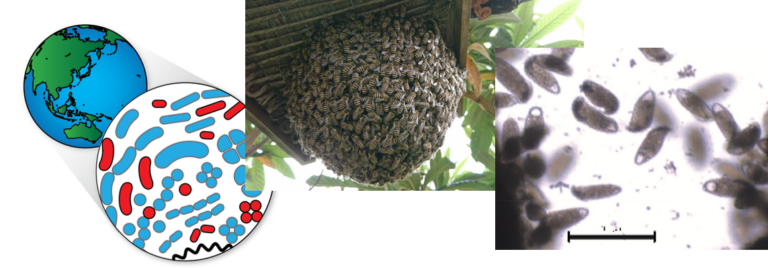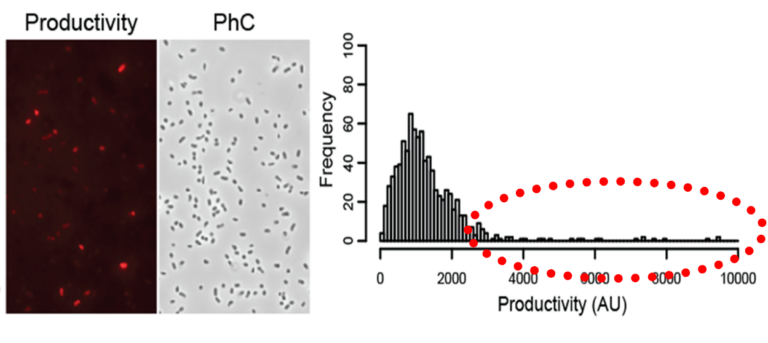Research Task
Ecological principles and molecular mechanisms unerlying the formation of microbiota and symbiosys
Manipulation of biological functions and microbial communities
We focus on functions of individual cells and their phenotypic heterogeneity in microbial populations. Combining single-cell analyses and versatile models of microbial ecosystems, we aim to disentangle complex biological phenomina in microbiology and develop novel technologies based on those mechanisms and principles.
Biotechnologies and ecological functions addressing environmental issues
We study physiological functions and ecological characteristics of microorganisms and their communities that play a central role in various ecosystems. Using not only microorganisms but also animals and plants as research materials, we are also working on the creation of new technologies based on the functional fusion of microorganisms and higher organisms.

Biological interaction and its potential for applied science
To investigate new functions that arise from interactions between organisms, we study complex mechanisms underlying microbes-microbes, plant-microbes, and insect-microbes interactions. We are working on the control of those biological interactions and the creation of new interactions, aiming to develop new technologies that contribute to biomanufacturing and the circular economy.

Analysis of biological functions and development of new biotechnology
Using cutting-edge approaches and unique experimental systems, we analyze genes and physiological functions of microorganisms and insects to develop new biotechnologies. In particular, we focus on the phenotypic heterogeneity exhibited by microorganisms at the single-cell level. Studying mechanisms underlying such fundamental “variations” and their biological significance, we develop new breeding methods of industrial microorganisms.



